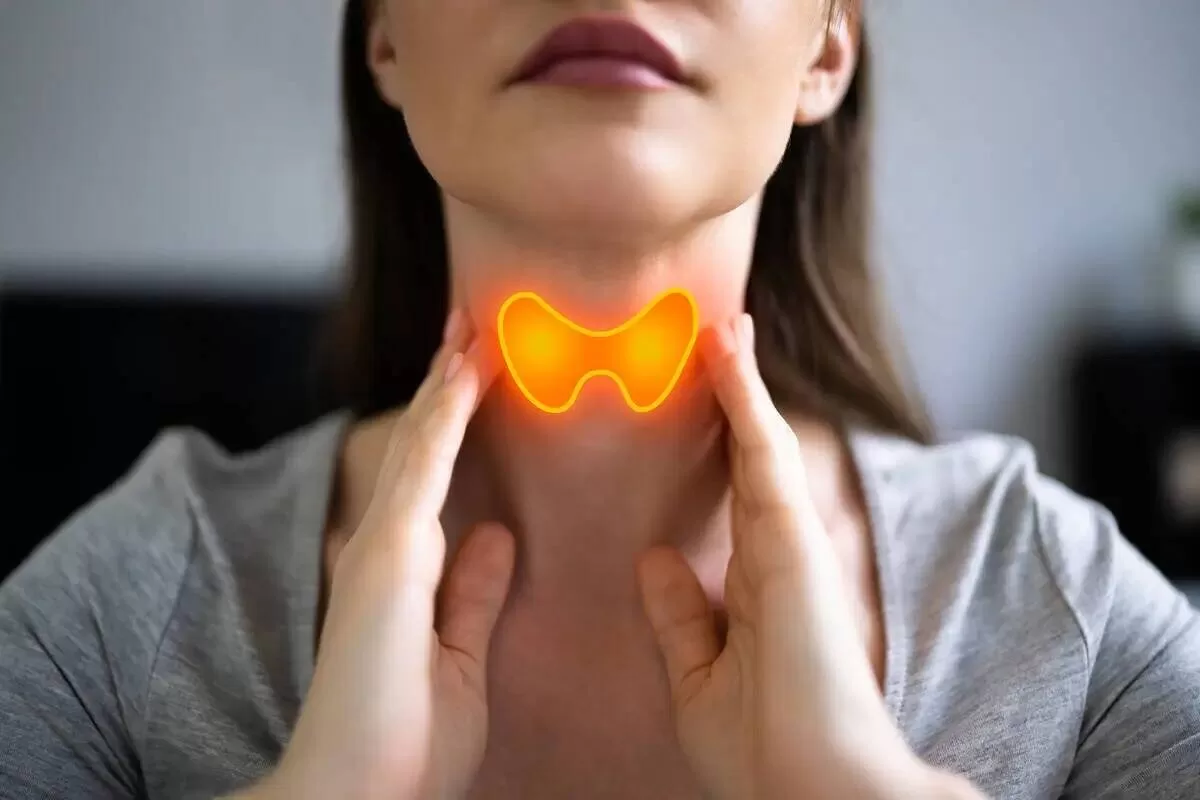Question: I recently read that thyroid problems affect women more often than men. Can you explain to me what the thyroid is and how it affects my body? Can I do anything to avoid having thyroid problems as I get older?
Answer: The thyroid is a small, butterfly-shaped gland located at the base of the neck. It has a significant effect on the body, as it produces hormones that help regulate many of the body’s functions.
The thyroid gland produces two main hormones: thyroxine (T-4) and triiodothyronine (T-3). These hormones keep metabolism steady, help maintain body temperature, influence nervous system function, and can affect heart rate and blood pressure. The thyroid gland also produces a third hormone, calcitonin, which helps control the level of calcium in the blood.
Unfortunately, there are numerous disorders that can affect the thyroid, and women are at higher risk for them than men. According to the American Thyroid Association, approximately one in eight women will experience thyroid disease in her lifetime.
Although it is believed that the development of thyroid disease is related to a person’s autoimmune system, why women are more susceptible to thyroid disease is unknown. Genetics may play a role. Women of any age can experience thyroid problems, although women who have just given birth or are going through menopause are more likely to experience thyroid problems.
The best known thyroid conditions are:
Thyroid nodules: It is estimated that approximately half of the US population has a nodule by age 60. Although some thyroid nodules can grow to a size where they are visible, these nodules often go undetected until discovered by a health care professional during a physical examination or incidentally during neck imaging for another reason. .
Fortunately, most thyroid nodules are benign, but investigation is necessary to determine if thyroid cancer may be present. Evaluation of a suspicious nodule may include a blood test and an ultrasound.
Hyperthyroidism: When the thyroid gland produces too much thyroid hormone, a condition known as hyperthyroidism, or overactive thyroid, can result. Although the entire thyroid is often involved in a hyperthyroid state, sometimes benign nodules can cause a surge in hormones.
Hyperthyroidism speeds up the body’s metabolism, causing various symptoms, such as unexpected weight loss; increased hunger; fast or irregular pulse; sweating; mood problems, such as increased anxiety or irritation; and changes in the menstrual cycle.
Depending on the person’s age and medical history, treatment options include medication to lower hormone levels or radioiodine, which destroys the thyroid and its ability to produce thyroid hormone. Some patients may be candidates for surgery to remove all or part of the thyroid.
With thyroid surgery or radioactive iodine, patients are expected to require thyroid hormone replacement therapy.
Hypothyroidism: Hypothyroidism can occur when the thyroid gland does not produce enough thyroid hormone.
There may be no noticeable symptoms in the early stages of this condition, as the symptoms often develop slowly or are attributed to other ailments. For example, many patients report fatigue and weight gain, although it must be recognized that these are non-specific symptoms that could be due to a number of reasons other than thyroid dysfunction.
As metabolism slows, other symptoms may appear, including constipation, a hoarse voice, muscle weakness, and sensitivity to cold.
Diagnosing this condition requires a blood test.
Treatment of hypothyroidism usually consists of taking a thyroid medication known as levothyroxine, in order to bring hormone levels back to normal.
Hashimoto’s disease: Hashimoto’s disease is an autoimmune disorder that occurs when cells of the immune system cause the death of cells that make thyroid hormones, resulting in hypothyroidism.
Although anyone can develop Hashimoto’s disease, also known as chronic autoimmune thyroiditis, it is more common among middle-aged women. The main treatment is thyroid hormone replacement.
There is no way to prevent thyroid disease. The best course of action is to establish a routine for annual medical exams and watch for any unusual symptoms you experience. Talk to your health care team about your concerns, including thyroid hormone tests if you are concerned. If you suspect you have thyroid problems, an evaluation by a specialist may be warranted.


